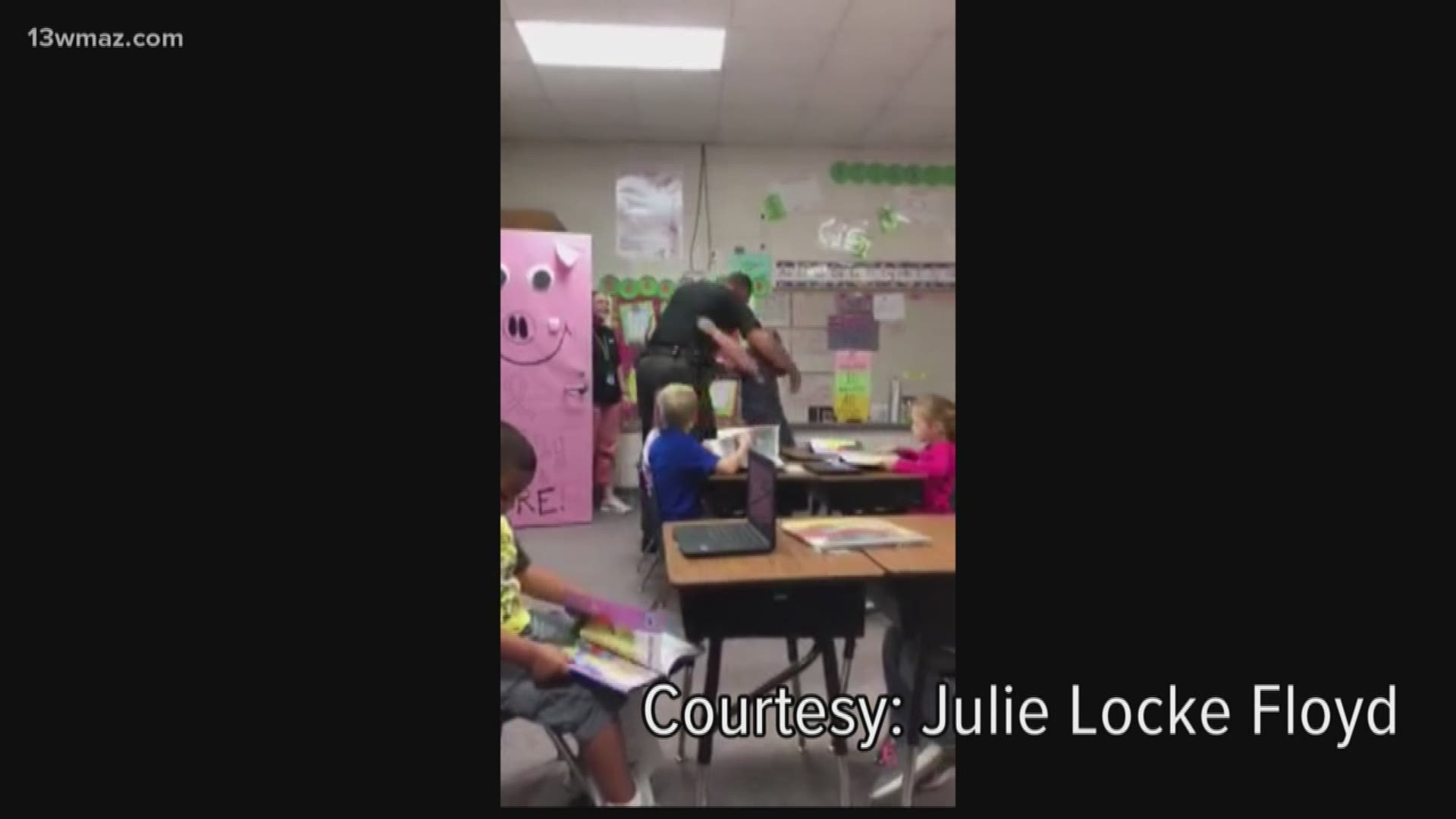Corporal Kyle Williams is the school resource officer at Northwest Laurens Elementary, but to students, he is their friend.
Williams can always be counted on for a high-five and his attendance in the cafeteria.
"You know, that's where a majority of our kids are at," Williams said. "It's a good place we can bond and interact."
However, last Wednesday at lunchtime, his interaction with a student was much different.
"We were making our way down to lunch just to hang out and we heard a holler for help," Williams explained.
First grader Abbie Horton began choking and signaling for help by holding her throat and pointing towards her mouth.
"My parents taught me to do that," Horton said.
Williams then answered to her call for help.
"I just started jumping lunchroom tables," Williams continues, "Me and Mrs.Judy got there at about the same time and you could tell she was choking."
"It was horrible, my face turned purple," Horton described.
When Williams got to Horton, he began performing the Heimlich until she could breathe again.
Williams says although he is trained for these events, his parental instincts kicked in more than anything.
"I have three children, one of them who used to choke a lot. I don't know if the airway was small or if he ate too fast, but I have experience in the Heimlich for that reason," Williams said.
"I like to think that God put that scenario through to prepare me for this scenario," Williams explained.
However, that's not where the story ends.
The next day, Williams got called to Abbie Horton's classroom where she gave him a "thank you" gift of pastries and a drawing.
"Thank you for saving my life," Horton said.
It was something that Williams says doesn't take a special title.
"Anytime somebody is in a time of need, we need to be there for them," Williams continued, "You know, it doesn't take a deputy to go help somebody."
Williams and the Horton family say it is extremely important to teach children how to properly signal for help when choking.
Simply put your hand around your throat and point to your mouth. This small lesson can make a big difference and even save lives.

